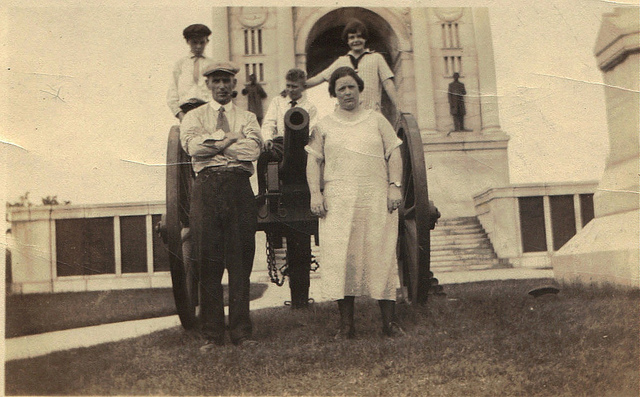
If you’re anything like me, you’ve heard yourself, and others in your circle, expressing their pain, discomfort, confusion and even disdain regarding situations with family—specifically parents.
And it’s sometimes around the holidays, family events and even a random Tuesday morning when these memories creep into my present as a reminder of that which is obviously not fully healed.
If you’re reading this, you can probably relate—no pun intended.
This struggle is very real and for some of us these relationships are the most challenging in our lives. They can be exhausting and seem so utterly hopeless that we feel the need to cut ties or set permanent boundaries to maintain some semblance of emotional well-being.
My parents and I have struggled my entire life.
The conflict and fighting began when I was five years old and led to my running away from home to little tree forts that I built in patches of woods behind our home growing up. Family counseling became part of life, same as piano lessons and athletic events. Reading and writing were my lifeline, coping mechanism and creative outlet for much of my childhood.
There was a lot of anger, and I felt isolated for various reasons. It felt as if I was doing something wrong more often than I felt approval, acceptance or encouragement.
I was the oldest of three children, so this was new territory for them. They had their own struggles, and admittedly, I was stubborn and difficult at times—and I still am. They sometimes acknowledge these struggles, but the wounds have not healed fully for either them or me.
The memories are like sounds reverberating through my life. They haunt me as likely as they haunt my parents.
I’m now in my 30s and a mother myself.
I have overcome a lot, am grateful for my wise friends and teachers, and feel I’ve found a healthy way of living my life despite the challenges I know will always arise.
But when I am around my parents I find myself regressing back to a 15-year-old version of me. I become emotional and defensive, take things way too personally and even notice that I am more prone to physical illness around these times.
It’s as if I lose my sense of identity.
My parents were, and are, well-intended, as I truly believe most parents are, depending on their level of awareness. They were just doing the best they could, according to what they knew and understood at the time.
But we have a propensity to idealize our parents, don’t we? We put them on pedestals at a young age and expect them to have the right answers and appropriate actions. We expect them to be perfect and guide us in ways that are not always realistic.
Somebody somewhere wrote once that “parents are people too.”
They are fallible, just as we are as adults.
The challenge we deal with as adult children of imperfect beings is in managing our own expectations.
We expect wisdom, a certain amount of warmth, interest in our lives and connectedness. We expect coffee dates or mother-daughter bonding time that seems to only take place in some parallel universe. Or, maybe we just want space, acceptance or encouragement.
We look at other families and make comparisons, just as we have the tendency to compare everything else in our lives.
I’ve found that expectation and comparison lead mostly to judgment and disappointment. But it seems to be a different ball game when it comes to the parental dynamic, because this pain can run very deep.
I can look back on my childhood and be bitter. I can judge what I perceive they’ve done “wrong.” I can look at our present situation and compare the reality to the ideal that my overactive imagination frequently creates.
But this is useless. Clinging to the pain of the past leads only to frustration and suffering. It does nothing but impinge upon all else that is beautiful in our present lives.
We cannot be loving parents and hurt children at the same time.
After all, what we perceive as inadequacies in our parents likely stems from their own pain. And our unnecessary suffering as parents will only take away from our abilities to love our own children and our parents, who may still very well be hurting.
Decades of conditioned emotional reactions and dynamics deeply engrained in our biographies can make these cycles extremely difficult to break. Like the most difficult of addictions, it takes an immense amount of presence and grit to remain centered enough to not get pulled into old patterns.
We can choose to see these dynamics as a call to integrity.
I am not the little girl who ran away to the trees anymore. I am not 15 years old. Rather, I am an adult who can choose how I allow things to affect me, no matter how difficult or challenging this is at times.
I know and teach that we’re all responsible for our own energy and emotions. I see my current interaction with my parents as a crucial time to walk my talk. I recognize that it’s a true test of all that I have practiced over the last decade of my life.
We need to be accountable in choosing to respond rather than react to conditions and stimuli, but that is true trickery when it comes to certain people, no?
If we are fearing judgement or conflict, this takes away from our ability to love. It is our ability to love unconditionally those from whom we craved unconditional love that helps perpetuate healing. But it’s crucial to approach this without expected results.
Unconditional love rather, is the result.
If we want unconditional love, we must first love ourselves unconditionally so that we need not seek this from others. This allows us to have a greater capacity to love and accept our parents, despite what has happened in the past.
We have an opportunity to see what it is that we are pining for from others, so that we can cultivate this within ourselves.
Today, I am a proud and loving mother to two beautiful little daughters—one of whom looks exactly like I did as a young girl. As a grown woman, I still love trees, the sound of a piano can soothe my soul in an instant and I am a writer with a house full of books.
I am still me, but different.
And this version of myself realizes that if we become strong enough to love ourselves enough to cater to our own energy and integrity, this is the pivotal point where true healing can begin, for all of us.
Relephant read:
If I Can’t “Fix” My Family, I Will Try to Understand Them.
Author: Katie Vessel
Editor: Nicole Cameron
Image: fauxto_digital/Flickr










Read 0 comments and reply